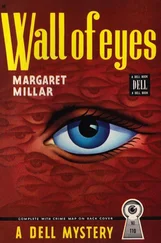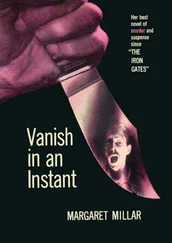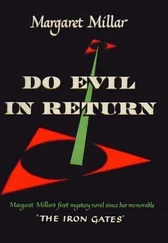The audience appreciated this more than Owen did. He was suspicious of Mexicans anyway, and he wondered if she’d deliberately brought up the business of standing in front of a mirror making approving remarks before leaving the house. Everyone did it, of course. He wasn’t the only one. And he certainly never said, “Hey, looking good.”
“Did she sound happy, Miss Gomez?”
“Oh, yes, real happy, like maybe she’d had a couple of drinks.”
“Did you listen to what she was saying?”
“I had to listen. I was there. You can’t open and close your ears the way you can your eyes.”
“What did you hear?”
“Something like, ‘You always wanted to go to Hawaii, and now you get to go.’ Stuff like that. I didn’t think anything of it. A lot of people would like to go to Hawaii, me included. I never even saw Santa Felicia until this afternoon.”
“Then she seemed to be looking forward to the trip, is that right?”
“Sure. Why not?”
Owen had no further questions, and Donnelly did not cross-examine.
Court was adjourned for the weekend.
On Friday night the two older Owen boys, Chadwick and Jonathan, were allowed to go to a high school football game.
Thatcher, the youngest, knew what was in store for him. He could see the constitutional amendment booklet sticking out of his father’s coat pocket, so he hung around the kitchen as long as possible, even going so far as to help his mother stack the dishes in the dishwasher.
“I feel sick,” he told Vee. “Like I got something serious.”
“Really? What do you suppose it is?”
“Chicken pox.”
“I don’t see any spots.”
“Right here on my arm.”
“That’s your poison oak from last week.”
“Or maybe I got Rocky Mountain spotted fever.”
“That comes from ticks not found around here.”
“Then how about endometriosis?”
“Will you spell that for me?”
Thatcher was as easily trapped as a butterfly. He had picked the word up while eavesdropping on a conversation between two lady teachers, and he’d copied it in the corner of a notebook, thinking it might be useful someday. This was the day. He took a scrap of paper from his pocket and read aloud the carefully printed letters.
“Endo meet me oasis.”
“That sounds serious,” Vee said.
“It is. I think I ought to go to bed and watch TV.”
“I think you think wrong. Your father is waiting for you in the den.”
“But I feel weak and dizzy. Things are floating in front of my eyes.”
“You have no fever, your color is good and you ate two helpings at dinner.”
“But what if I really got that disease? It could be fatal.”
“Not as fatal as what you’ll get if you don’t drag yourself into that den. And for your information, by the way, endometriosis is a disease of the womb, and boys don’t have wombs.”
“I could be an exception. Nobody ever X-rayed me.” Vee closed the dishwasher with a bang. “Beat it, Thatcher.”
“Okay. But you’ll be sorry if I’m terminal.”
“We are all terminal, Thatcher. However, at the moment you’re more terminal than most, and endometriosis has nothing to do with it. Your father doesn’t like to be kept waiting.”
Vee switched on the dishwasher, wiped her hands on her apron, found out she wasn’t wearing one and reached for a towel.
“Thatcher, I want you to do me a favor.”
“What’s in it for me?”
“What’s in it for you? Joy in bringing happiness to someone, pride in your ability to show compassion to another human being.”
“How much is that in dollars?”
“One.”
“What’s the deal?”
“Be patient with your father. You know how proud he is of you and how much he loves you.”
“If he loves me so much, how come I’m not at the football game? If I’m too young for football, I’m too young to memorize the amendments.”
“Oh, come on, Thatcher, be reasonable.”
“I’m reasonable. It’s everybody else that isn’t.”
“A buck is a buck. Take it or leave it.”
“All right, it’s a deal. What do I have to do?”
“Be nice to your father. The case he’s prosecuting is very important to him, and he’s working so hard he needs to get his mind off the law.”
“The amendments,” Thatcher pointed out in a deadly reasonable voice “are the law.”
“Oh, you know what I mean. Make an effort to memorize at least some of them. Give it the old college try.”
“I’m only in the sixth grade.”
“So give it the old sixth-grade try. Will you do that for me, please?”
“No. I’ll do it for a buck.”
Vee gave him a hug and kissed the top of his head. She loved this boy who was so much like his father as deeply as she loved the father who was so much like his son.
In the small, book-lined den Oliver Owen sat in the red leather chair in front of the fireplace. The leather was actually vinyl, and the fireplace was a gas grate, but the books were real and read.
Thatcher sat on the floor, arms clasped around his legs, chin resting on his knees.
“Wouldn’t you be more comfortable in a chair, Thatcher?”
“No.” Then, thinking of the dollar, Thatcher added, “Dad.”
“Very well, we’ll get right down to business. What are the first ten amendments called?”
“The Bill of Rights.”
“Good. You remembered.”
“I don’t remember what they are, though, except the one about how we should all carry guns around.”
“That’s not quite what it says, Thatcher. We’ll get back to that later. For now let’s go through some of the other amendments to give you some idea of what’s ahead. Let’s look at Amendment Thirteen. Like the other amendments, it is indicated by a Roman numeral — in this case an X followed by three ones. In Roman numerals an X is a ten, and three ones add up to what?”
“If I had a computer like all the other kids—”
“You don’t need a computer to add ten and three, especially when I’ve already told you the answer, which is thirteen.”
“I was just going to say thirteen.”
“Amendment Thirteen reads as follows: ‘Section One. Neither slavery nor involuntary servitude, except as a punishment for crime whereof the party shall have been duly convicted, shall exist within the United States or any place subject to their jurisdiction. Section Two. Congress shall have power to enforce this article by appropriate legislation.’ December eighteenth, 1865.”
Thatcher chewed thoughtfully on the hangnail on his left thumb. “Does that mean we can’t have slaves?”
“Yes.”
“Why not?”
“Because slavery is wrong.”
“Why?”
“Don’t ask stupid questions, Thatcher. Figure it out for yourself. Would you like to be someone’s slave, having to obey orders, to work without salary or allowance?”
“No, but I wouldn’t mind having one of my own. Man, think how great it would be having a slave to do all your chores, pick up your clothes and do your homework and beat up on the kids you don’t like. Wow, wouldn’t that be super?”
“No, it would not be super, Thatcher. It would be immoral and illegal, and the possession of a slave would make you hopelessly dependent.”
“I already am, Chadwick says. Wow, when I think what my slave could do to that creep—”
“Let’s stick to the subject. At the time, 1865, there were actually some arguments in favor of slavery. And certainly some results of the Thirteenth Amendment were not adequately foreseen by its creators. I refer to the excessive proliferation of the black race in the last hundred years.”
“Maybe a slave could even go to school for me and take my exams. And Friday nights he could stay home for me while I went to the football game. Boy, oh, boy, when I get to be President, I’m going to bring back slavery.”
Читать дальше
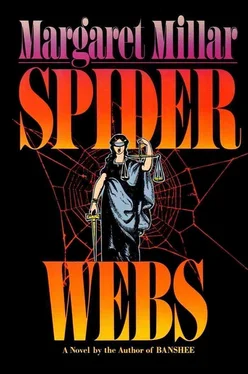

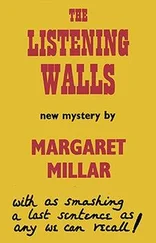
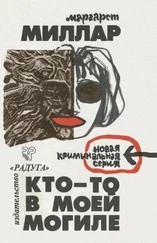
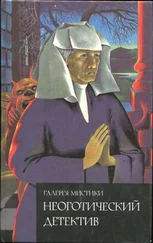
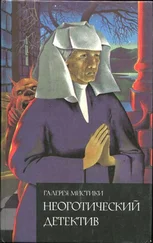

![Маргарет Миллар - Rose's Last Summer [= The Lively Corpse]](/books/384369/margaret-millar-rose-s-last-summer-the-lively-c-thumb.webp)
